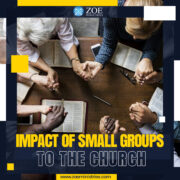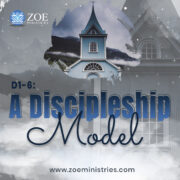You Were Made for Worship
Work is our form of worship as human beings. Our purpose is to worship God. However, how come when the world was perfect, and sin had not entered the world yet, there was no worship service mentioned? There was no music. What was there for man to do? There was work.
15 The Lord God took the man and put him in the Garden of Eden to work it and take care of it.
20 So the man gave names to all the livestock, the birds in the sky and all the wild animals. (Genesis 2:15,20)
Worship is an expression of adoration. Moreover, it reflects how much worth you attribute to someone. When Adam was created, how did he express his adoration for the Lord? What activity was present? There was work. After, God assigned Adam his “Career Mandate” and he worshipped God through his obedience.
You’re now cutting against the grain of your very existence to not have something to work on. You are meant to serve. You are meant to be challenged. However, you were also created to take breaks from it. The Creator revealed to us your design. Resting is part of your career mandate. Plan, review, complete, and then rest. Then, go back to work. This is your nature.
It’s Unnatural Not To Work
Sickness occurs when you go against your design. There is a connection between purpose and health. Moreover, you were not designed to be idle. Idleness causes you to abuse your design.
My (Bishop Malcolm’s) mother worked in the national health service for 30 years as a nurse. When she came to retire, they called her in for counseling, in order to talk through the retirement process. She asked if I would go with her and I said, “Absolutely.” I went with my mother and we sat down. A lovely lady began to talk through the mechanics of retirement, the mechanics of the process, the pensioning, the forms, and all of that. I thought, “Yeah, this is really helpful because it helps you. You know what to do, you know what to expect.”
Then the woman turned around and said, “So, tell me about yourself. How many children?” she said. “Do you have grandchildren?”
“Yes.”
“That’s really nice.” Then, the woman started to really lighten up. She said, “Are you a member of any club or society or a group?”
Mother said, “Yes, yes. I’m an active member of my church.”
“Oh, that’s wonderful. Do you do things in church?”
“Oh, yes. Yes, I have roles. I run the prayer group, you know. I do all of these things.”
“Oh,” and I’m seeing this woman lightening up. She said, “Do you have any other hobbies? Do you garden? Do you have plants?”
Statistical Proof of Life Expectancy
As my mother was saying stuff, the woman was getting ecstatic. I’m like, “Excuse me. Tell me why are you saying this?” The woman looked at me and she said, “Because we have statistical proof that if you have nothing to do with your life after you retire, you are going to die within the first few years.”
“What?”
“They said your life expectancy drops dramatically if you have nothing to do.” Then a phenomenon that I couldn’t explain suddenly made sense. The phenomenon is one that I observed in the sunny island of Jamaica. We would drive through some districts. This was Beverly Hills. This was Hollywood. These were beautiful houses that had been built by people who were working in this country. They sent their money back home to build their dream house in anticipation of retirement. They would build their dream house, retire, go back to Jamaica and within two years, they’re dead and the house is empty.
Absolutely, it’s a sociological phenomenon. How do you spend your life building for a dream and when you get it, you’re dead? Our bodies are interconnected with our minds. They’re all part of the same system. If your mind loses purpose, the reason is, your body has no reason to continue living. There’s none. You simply start packing up and dying. The whole idea that I’m going to retire one day and spend the rest of my life on a beach is the formula for death because it’s a totally unnatural human state.
Invitation
Your weekly dose of prophetic wisdom and anointing awaits you. Join our LIVE Conference Call!
1) Call 515-604-9266
2) Go to startmeeting.com, and use the login: BishopJordan


























